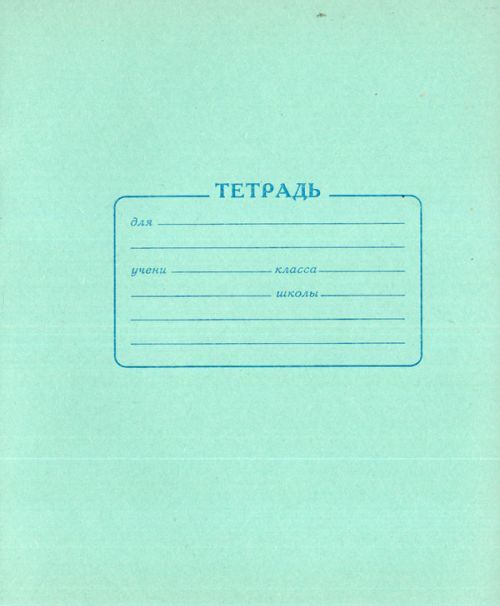Category: "Academia"
Задача
 The spring semester is about to end; many are about to graduate. This time I am amongst these “many” (Yay!
The spring semester is about to end; many are about to graduate. This time I am amongst these “many” (Yay! ![]() ). After years of hard studying, staying up till the wee hours, trying to cram for a test, I will finally have my degree! I will move on from solving math problems to completing other important tasks and objectives posed in life.
). After years of hard studying, staying up till the wee hours, trying to cram for a test, I will finally have my degree! I will move on from solving math problems to completing other important tasks and objectives posed in life.
Conveniently enough, in Russian a math problem and any sort of task or objective is just one word, задача. It is a noun of feminine gender; its diminutive is задачка.
| Sg | Pl | |
| Nom | задача | задачи |
| Acc | задачу | |
| Gen | задачи | задач |
| Pre | задаче | задачах |
| Dat | задачам | |
| Ins | задачей | задачами |
| — Ты решила последнюю задачу по физике? — Нет, мне времени не хватило. |
“Did you solve the last physics problem?” “No, I didn’t have enough time.” |
| В этом году я поставил перед собой задачу бросить курить и начать заниматься спортом. | This year I took it upon myself to quit smoking and start working out. |
| Давайте обсудим задачи этого семинара. | Let’s discuss the objectives of this seminar. |
| На данный момент своей главной задачей я считаю окончание университета. | At this moment my main goal is to graduate from the university. |
| Ну и задачку ты передо мной поставила! Я весь город объездил в поисках этой книжки! | What a task you gave me! I drove around the whole city looking for this book! |
Because in English “problem” both means math exercise and trouble, I would imagine that English speakers might confuse the meanings of these words in Russian. For example, when talking about solving a physics problem, you don’t want to use “решить проблему” because in Russian проблема has only one meaning – trouble; so your question would mean to "resolve a problem". Therefore, if you want to ask your classmates if they finished their assigned math problems, you should use the word задача.
Класс (часть вторая)
The second meaning of класс is grade in the sense of first grade, second grade, third grade — in other words, the early years of school life. First grade begins at the age of seven for most Russians, and there are ten years of grade school, which essentially covers what we Americans think of as grade school, elementary school, junior high school, and high school, although the Russians start a year later and end a year earlier.
| В сентябре Алёша пошёл в первый класс. | In September Alexei started first grade. |
| Маша уже ходит во второй класс. | Maria is already in second grade. |
| В третьем классе читают отрывки из поэмы «Руслан и Людмила». | In third grade they read selections from the poem “Ruslan and Lyudmila.” |
| Когда Даша окончила десятый класс, она перестала шить свою одежду. | When Darya finished tenth grade, she stopped sewing her own clothes. |
Класс (часть первая)
Why is it that complicated words in a language never cause problems, but simple words do? I mean, no foreigner who studies Russian ever messes up a sentence with the phrase дезоксирибонуклеиновая кислота in it, but Americans who speak Russian misuse the word класс all the time.¹ Let's get to the heart of the matter. First of all, the word класс has multiple meanings that we will address over the next couple of weeks. Today we'll start with its most physical meaning, which is classroom, like the classrooms you find in a grade school or high school:
| Преподавательница вошла в класс. | The teacher entered the classroom. |
| В каждом классе висел красный флаг. | Each classroom had a red flag. |
| Из класса выбежали ученики. | The students ran out of the classroom. |
| Когда я подходил к классу, слышно было, как шумели дети. | As I approached the classroom, you could hear the noisy children. |
The trouble with the word for college-age Americans comes from the English usage “I am going to class.” In English the phrase means something like “I am about to attend the regularly scheduled event by which knowledge is passed on to me.” Even if your class is not meeting in a regular classroom, we still use the word class; for instance, “Today the professor is holding class in a conference room at the museum.” The sentence «Я иду в класс» means “I am going to the classroom.” It does NOT mean “I am going to class” in the normal English meaning. For that purpose one says “Я иду на занятия.” Notice that занятия is a neuter plural noun, but despite its plurality we will usually translate it as a singular in English, although sometimes the plural sounds okay as well:
| Я иду на занятия. | I am going to class. |
| — Откуда ты идёшь? — С занятий. |
“Where are you coming from?” “From class.” |
| — Где Паша? — На занятиях. |
“Where is Pavel?” “He's at class.” or “He's in class.” or “He's at school.” |
| Сегодня нет занятий. | “There's no class today.” or “There are no classes today.” |
¹ Дезоксирибонуклеиновая кислота = deoxyribonucleic acid (DNA)
Черновик
The Russian word for a rough draft copy or a notebook where an author outlines his/her story, writes down ideas, and etc. is черновик.
Черновики are especially popular with teachers in Russian elementary schools. I remember having to first do my classwork and homework in a черновик before carefully copying the final version into an exercise book without any errors and turning it in. These rough draft notebooks were usually mandatory and each student had to keep one for a grade.

Alexander Pushkin, a famous Russian poet, often drew sketches of his characters in his rough drafts, next to their line descriptions. Pictured above is a rough draft for the second canto of his celebrated novel in verse "Eugine Onegine."
Image taken from feb-web.ru.
| Sg | Pl | |
| Nom | черновик | черновики |
| Acc | ||
| Gen | черновика | черновиков |
| Pre | черновике | черновиках |
| Dat | черновику | черновикам |
| Ins | черновикoм | черновиками |
Here are some examples with the word черновик:
| У Mиши в черновике много клякс и исправлений. | Misha's rough draft has a lot of inkblots and corrections. |
| Я понимаю, что здесь сложно что-нибудь понять, ведь это только черновик. | I understand that it’s hard to understand anything here, it’s only a rough draft . |
| Она сразу написала это сочинение и даже не не посмотрела в черновик. | She wrote this essay right away and didn’t even look at the rough draft. |
| Bот и еще один черновик очередной, незаконченной статьи. | And here is one more rough draft of another unfinished article. |
Тетрадь
The word тетрадь can be translated as notebook or exercise book, depending on whether it is used for school or not. It is a feminine noun that declines like this:
| Sg | Pl | |
| Nom | тетрадь | тетради |
| Acc | ||
| Gen | тетради | тетрадей |
| Pre | тетрадях | |
| Dat | тетрадям | |
| Ins | тетрадью | тетрадями |
An exercise book is one of the core elements of the Russian education system and is regularly used by students on every step of the scholastic stairway—from preschool to high school. The most popular form of тетрадь used in schools holds about twelve pages, has a thin paper cover and is usually bonded with staples. Graph paper is used for math and lined paper for all other subjects. It’s basically a notebook in which students do their class work exercises and homework assignments. Generally, teachers require students to write with ink and keep everything as neat as possible, or else the grade is lowered. I’ve experienced this downgrading many times.
Example sentences:
| Мама, пожалуйста, купи мне новую тетрадь. | Mom, please buy me a new exercise book. |
| Елена, запиши все детали в свою тетрадь, а то ты всё забудешь. | Elena, write down all the details into your notebook, or else you’ll forget everything. |
| Я даже не знаю, сколько тетрадей я потерял за этот год. | I don’t even know how many exercise books I have lost over this year. |
Тетрадь, especially if it’s a small one, can also be referred to as тетрадка. People often use the two terms interchangeably. Examples:
| Владимир Михайлович схватил мою тетрадку, отошёл к доске, надел свои очки и стал внимательно её рассматривать. | Vladimir Mikhailovich grabbed my exercise book, stepped over to the blackboard, put on his glasses and began to carefully examine it. |
| Перелистав пару страниц, он медленно её закрыл и посмотрел на меня. | After flipping over a couple of pages, he slowly closed it and looked at me. |
| Я знал, что ему не понравятся мои рисунки. | I knew that he wouldn’t like my drawings. |
| — Что? Где же теперь эта тетрадка? | “What? Where is this notebook now?” |
| — Они её конфисковали со всеми остальными бумагами. | “They confiscated it with all the other papers.” |
| — Дурак! Разве я тебе не говорил, чтобы ты эту проклятую тетрадку дома не держал!? | “Fool! Didn’t I tell you not to keep this damned notebook in the house!? |
| — Извини, Вася, я же не знал, что всё так получится. | “Sorry, Vasia, I didn’t know that everything was going to work out this way.” |
